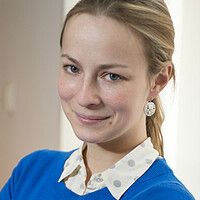'Hot.Cool.Yours.' Decoding Russia's Sochi Olympic slogan
Loading...
Each time the Olympic Games roll around, an organizing committee is tasked with distilling the unique character of the event into a punchy slogan. In 2008, Beijing went with “One World, One Dream.” Barcelona's, in 1992, was “Friends Forever."
And Russia’s? Three words, three periods, no spaces in between. “Hot.Cool.Yours.”
The motto drew chuckles from observers at home and abroad when it was unveiled in September 2012. USA Today suggested that it sounded more like “the title of Katy Perry's next album” or a “rejected marketing campaign for McDonald's 1980s flop, the McDLT,” which featured the head-scratching tagline "keep the hot side hot, and the cool side cool."
Sochi organizers helpfully provided an official explanation of the slogan, describing it as “intended to reflect the national character of Russia and the values of the Sochi 2014 brand, as well as Sochi 2014’s progressive and innovative approach to the organization and staging of the Games.”
And the periods between the words? “The dot after each word draws a parallel with high technologies (.ru) and the emblem of the Winter Games in Sochi.” (The logo features a “.ru” addendum to the word “Sochi.”)
Does the quirkiness of the slogan have something to do with the vagaries of Russian-English translation? Yes, partially, although it sounds equally awkward in Russian and plenty of Russians were thrown for a loop by its announcement, even if they have since come to embrace it.
Below is a quick linguistic tour of the motto.
Hot
The original word is a bit more colorful in Russian. Translators opted for simplicity, but they lost some of the context.
The Russian adjective zharkie is often used to mean “warm” or “balmy,” with connotations of something that’s too heated – bringing to mind that moment in skiing when you realize you may be wearing a layer too many. Or an old Soviet apartment heated to 90 degrees by a cranked-up radiator. Or, as one Russian commentator wondered when the motto was announced, “You think this might be referring to socks?”
To be fair, the Russian word also translates as “heated” – as in “heated competition.” This was probably the shade that organizers were trying to capture, as they explained: “The word ‘Hot.’ reflects the intensity of sporting battle and the passion of the spectators.”
The translators’ other objective – to emphasize “the location of the Games, the southern resort city of Sochi” – is somewhat problematic, given that critics have warned that the location isn't wintry enough and may run into weather or snow problems.
Cool
Again, lost in translation, somewhat.
The Russian version uses the word “wintry” (zimniye) instead. That word calls to mind images of snow, ice, and white mountain tops – as opposed to something merely “cool,” weather-wise.
In picking the word, the organizers seemed to be after other English shades of the term. “Cool” stood not only for the Games’ time of the year," said the Sochi Olympics chief executive, Dmitry Chernyshenko, but also “for how Russia is perceived by the rest of the world.”
Fair enough. But the result is a dash of cognitive dissonance between hot and cool, temperature-wise.
Yours
No translation problems here. Yours means yours, in both languages.
The word was chosen to indicate that no one is excluded from the party. As Mr. Chernyshenko explained, “The Sochi 2014 slogan demonstrates that it is impossible not to participate, watch, experience, and be proud because this is Your Games."
But many Russians, especially those in the political opposition, balked at this non-negotiable offer of a personal stake in a vanity project they regard as corruption-ridden and overpriced. “The [Games] are yours because they’re yours, end of story,” a Russian commentator grumbled in 2012. “Whether you want to or not, you’re subscribed, and don’t try to bail out.”
But with construction completed, and the curtain about to rise on the greatest spectacle ever organized by Russia in modern history, some former skeptics were coming around to the slogan and the spectacle.
An opposition blogger recently posted a photo of a gondola full of young, blond female volunteers grinning into the camera with a backdrop of the snowy slopes of Krasnaya Polyana mountain and asked, mockingly, “still want to boycott the Games?”






